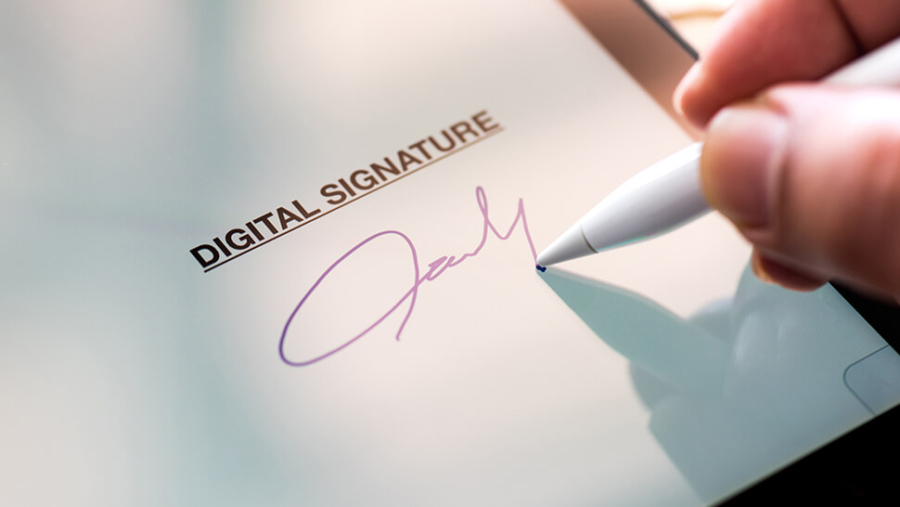

In August 2018, the Law Commission launched a consultation relating to the use of electronic signatures to execute written agreements. It produced a consultation paper and invited views of other organisations on the subject, given the increased use of e-signatures to conduct transactions in a more flexible and efficient manner. The Law Society recently provided its response to the consultation and raised some interesting points, as the rise in digital technology calls into question the need for prescribed formalities when producing written agreements.
The Law Commission’s consultation paper
The Law Commission’s project addresses uncertainty as to the formalities involved in the electronic execution of documents, and whether the law surrounding it is flexible enough for the digital age.
In its consultation paper, the Law Commission summarises what constitutes an ‘electronic signature’:
• A “wet ink” signature page which is then scanned and circulated by email
• Typing the signatory’s name or initials into the document
• Manuscript signing on the computer screen
• Signature by password
• The use of ‘accept’/’agree’ buttons on the computer screen
• Fingerprint or facial signature
• Use of cryptography to sign documents
The use of these methods is widespread, and legally there is no need for most agreements to be executed in person. An agreement generally does not even need to be in writing to be valid, although it is often recommended for purposes of certainty. Moreover, the courts and the European Union have supported the use of electronic signatures, provided that there is a clear intention by parties to be bound by the executed document. However, there is still a lack of clarity in black-letter law and contracting parties can be wary of using electronic signatures in practice.
The consultation paper concludes that an electronic signature is capable of complying with existing law, subject to what corporate users may find in practice. However, in the case of a deed, there is a requirement that a separate individual must witness any signature. There is debate as to whether this could be done via video-link or Skype, but it represents one of the major barriers for effective electronic execution of deeds.
The Law Society’s response
The Law Society has recently published a response to the Law Commission’s consultation paper. The main points it makes are as follows:
- It agrees principally with the Law Commission’s views – an electronic signature is capable of satisfying the requirement for a signature where there is an intention to authenticate the document.
- It proposes the use of an ‘industry working group’ to produce specific technological solutions for electronic execution in different industry areas.
- It proposes legislative change in order to remove any doubts there may be as to the validity of documents electronically executed. The Law Society says that the law should be “enabling and not prescriptive”.
- The current practice of witnessing signature in person is not onerous, so there is doubt as to whether witnessing signature by video-link would become widespread.
- In the case of deeds, the concept of ‘delivery’ should be revisited by the Law Commission.
The Law Society’s full response can be downloaded from this link: https://www.lawsociety.org.uk/policy-campaigns/consultation-responses/law-commission-consultation-electronic-execution-documents/
Clearly there are still questions to be answered by the Law Commission, especially relating to the formalities relating to executing deeds. However, the findings thus far are very important in bringing the law up to date with what is actually happening in practice. Although the paper stresses the importance of electronic signatures for a competitive UK following Brexit, it is perhaps more significant that the law be made flexible at a time where contractual agreements can be formed more easily and efficiently than ever before.
For further advice on the electronic execution of documents, and all other litigation and dispute resolution matters, please visit our page here: https://www.hcrlaw.com/service/dispute-resolution/










